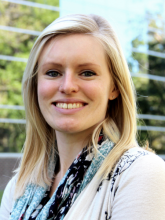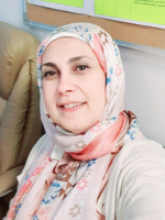To read more about the assessment and outcomes of this project, see the publication: Wood., E. A., Collins, S. L., Mueller, S., Stetten, N. E., & El-Shokry, M. (2022). Transforming perspectives through virtual exchange: A US-Egypt partnership part 1. Frontiers in Public Health, 10.
Abstract: With more classrooms within higher education mobilizing strategies for internationalization, collaborative online international learning (COIL), also referred to as virtual exchange, is an effective approach at offering intercultural competence through experiential learning. This strategy provides students who face barriers to international travel the opportunity to engage with students from other countries in meaningful ways, while enhancing and reinforcing course content. Grounded in the transformative learning theory, this study evaluates the effectiveness of a virtual exchange that was implemented within an undergraduate global public health course. The virtual exchange connected students from the University of Florida (within the US) with medical students in a microbiology course at Ain Shams University in Cairo, Egypt. Using adapted reflection prompts, we assessed the students' knowledge and learning before, during, and after the virtual exchange. This was coupled with a final paper to capture how personal backgrounds and experiences may contribute to their perception of the virtual exchange, as well as if they felt their global perspective had changed or shifted during the experience. Using directed content analysis for each of the measurements, two researchers coded the data independently to then present agreed upon salient themes to the larger group. Of the 28 randomly sampled students who participated in the virtual exchange, seven major themes emerged from the data: Connectedness; Openness; Acquisition of Knowledge and Skills; Communication; Cultural Identity; Anticipation of Options for New Roles, Relationships, and Actions; and Absence of Change. Through this evaluation it was clear there was a variance of different perspectives with many sampled students having diverse lived experiences that influenced their worldview prior to the virtual exchange. Despite course-related barriers, students acknowledged several facilitating factors that improved their intercultural competence and knowledge of course content. The integration of a virtual exchange within the classroom, with careful design and implementation, can provide a unique experience for students and an inclusive approach to learning.
- SLO 1: explore new cultures and global perspectives and examine the differences with your own
- SLO 2: Communicate with international peers across languages and disciplines to contribute to course assignments
- SLO 3: Design a multilevel strategy to address a global health case study.
- SLO 4: Reflect on the intercultural competence and digital literacy gained within this module.
Student-to-Student Project
Asynchronous Activities: 4-6 hours | Individual Work: 2-4 hours
Local group activities: 3-6 hours
Messaging Applications: WhatsApp , Email
Learning Management Systems (LMS) Canvas
Students will discuss and reflect on how their country addressed its COVID-19 response.


